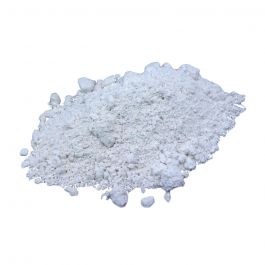- Language
- 🇺🇸
- Joined
- Mar 1, 2024
- Messages
- 322
- Reaction score
- 415
- Points
- 63
Nebol by hliník podozrivejší? potom je tak trochu zrejmé, že niečo skrývate. ale ja to neviem, nikdy predtým som neposielal drogy poštou.
- Language
- 🇬🇧
- Joined
- Jan 19, 2024
- Messages
- 45
- Reaction score
- 28
- Points
- 18
Mnohí ľudia hovoria, že hliník pomáha blokovať röntgenové žiarenie, ale ja si myslím, že je to mýtus
Olovo pomáha blokovať röntgenové žiarenie vďaka svojej hustote 11400 kg/m³, ale hliník má len 2700 kg/m³, takže si myslím, že je to zbytočné
je dobrý len na zabalenie drogy
Olovo pomáha blokovať röntgenové žiarenie vďaka svojej hustote 11400 kg/m³, ale hliník má len 2700 kg/m³, takže si myslím, že je to zbytočné
je dobrý len na zabalenie drogy
↑View previous replies…
- Language
- 🇺🇸
- Joined
- Jan 23, 2024
- Messages
- 110
- Reaction score
- 48
- Points
- 28
- Deals
- 12
Kravina! alobal neblokuje röntgenové žiarenie.
Tvoja droga je hromada organických molekúl. organické vyzerajú na röntgenovom žiarení inak ako kovové a dajú sa rozlíšiť.
ak chcete blokovať röntgenové žiarenie, musíte svoj dope ponoriť do podobného organického enveronmentu, aby vyzeral ako niečo neškodné. ale na tomto mieste končím, pretože nie som ochotný prezradiť svoje vlastné metódy utajovania.
Tvoja droga je hromada organických molekúl. organické vyzerajú na röntgenovom žiarení inak ako kovové a dajú sa rozlíšiť.
ak chcete blokovať röntgenové žiarenie, musíte svoj dope ponoriť do podobného organického enveronmentu, aby vyzeral ako niečo neškodné. ale na tomto mieste končím, pretože nie som ochotný prezradiť svoje vlastné metódy utajovania.
- Language
- 🇺🇸
- Joined
- May 8, 2024
- Messages
- 37
- Reaction score
- 9
- Points
- 8
Theoretically aluminum can shield against electromagnetic waves, also x-ray.
But the thin layers used mostly are not enough.
There are different ways through which a material can block electromagnetic waves.
Scattering and absorption which often happens in high density, but it also works through the conductivity of a metal, and aluminum and copper for example have a good conductivity, and this allows them to absorb energy from the electromagnetic radiation pretty well, because of their free electrons.
But you would need a thick layer of aluminum, the normal foil is not going to do that well-
But the thin layers used mostly are not enough.
There are different ways through which a material can block electromagnetic waves.
Scattering and absorption which often happens in high density, but it also works through the conductivity of a metal, and aluminum and copper for example have a good conductivity, and this allows them to absorb energy from the electromagnetic radiation pretty well, because of their free electrons.
But you would need a thick layer of aluminum, the normal foil is not going to do that well-
- Language
- 🇺🇸
- Joined
- May 8, 2024
- Messages
- 37
- Reaction score
- 9
- Points
- 8
Also the shielding ability of aluminum is better (lot better) at lower frequencies, and thickness would need to be increased a lot to shield effectively against x-rays. Also at such high frequencies like x-ray denser materials with high Z are normally required because they have a higher probability of interacting with high energy electromagnetic waves, but theoretically every conductor can block them t some point, also aluminum, but you need a very thick layer which is not practical.

